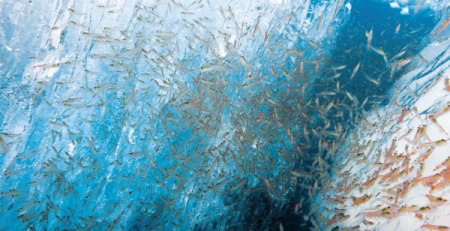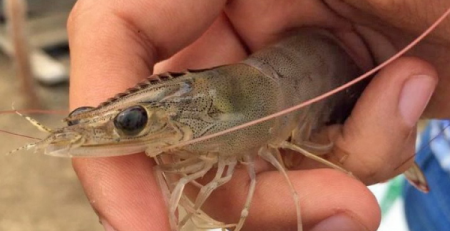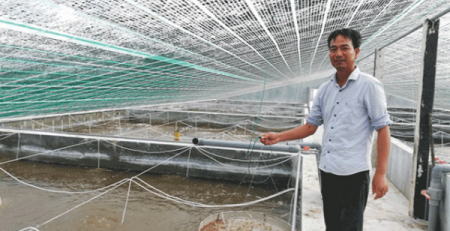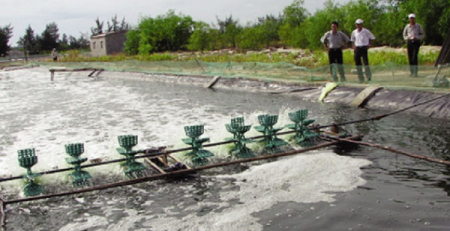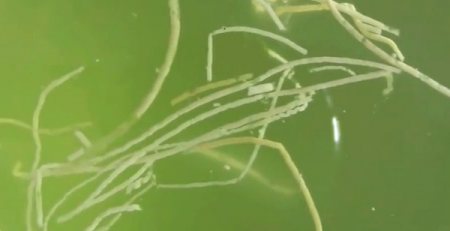3 precious herbs for shrimp
Nội dung bài viết [ẩn]
Using natural herbs to prevent and treat animal diseases is always a trend that scientists and farmers actively seek. Here are 3 herbs that have been studied to have a good effect on shrimp health.

Vera
Aloe vera, also known as aloe vera, lao vỹ, la Hoi … originates from Central China, and thrives in tropical countries. The scientific name is Aloe vera L. var chinenis (Haw) Berger, belongs to the Garlic family (Liliaceae). Aloe vera is a small, woody, short stemmed tree. The leaves are sheathed, without stalks, sprouting very closely, colored from light green to dark green. Succulent leaves, leaf edges have rough serrated edges like sharp, hard depending on type, the surface of the concave has many irregular spots, leaves about 30-60 cm long. When studying white components in leaves (also known as white jelly, gel) researchers discovered aloe vera containing more than 200 biological activities, including:
Anthraquinon compounds include: Aloin and Emodin have intestinal stimulation and antibiotic properties, it is used to fight bacteria, viruses and use as an analgesic. Aloe – Emodin: helps anti-aging skin; Mixture of Anthraquinon analgesic, dermatitis treatment, maximizing the penetration of toxins and bacteria; Organic substances: Monosaccharite, Polysaccharide, Cellulose, Mannoza, L-rhamnoza …; Saponins: Purifying toxins in the body; Anthraquinones Complex: The analgesic, anti-inflammatory effect of the skin, minimizing the penetration of toxins and bacteria; Vitamins: D, C, A, E, B1, B2, B6, B12 and folic acid; Minerals include: Calcium, Sodium, Potassium, Manganese, Magnesium, Copper, Zinc, Chromium are essential minerals of the body; Enzyme: Oxydaza, Lipaza, Amilaza, Catalaza, Allnilaza … helps digest, laxative, pain relief, in addition to help heal wounds on the skin; Aloe Vera gel contains 7 types of amino acids in 8 amino acid types and 11 of 12 amino acids that the body requires and can synthesize itself.
From the effects of aloe vera, Mexican researchers conducted experiments using aloe vera in enhancing resistance to AHPND and WSD on white leg shrimp for positive results. Specifically, when adding aloe vera at the rate of 1 g / kg of feed at a frequency of 2 days / time, it will help shrimps become infected with WSSV + Vibrio with higher survival rate. At the same time, does not affect shrimp growth rate. This study will also open hope in using aloe vera as a safe herb capable of replacing antibiotics in the prevention and treatment of shrimp diseases in the near future.
Galangal root
Rieng has the scientific name is Alpinia officinarum Hance, belongs to the Ginger family – Zingiberaceae. Rieng is an abundant source of sodium, iron, fiber, Vitamin A, C, flavanoid … These substances are important in maintaining health … Galangal contains volatile essential oils including cineole, eugenol, pinene , methyl cinnamate, camphor; The main compounds are sesquiterpenes hydrocarbons, sesquiterpene alcohol; heptone compounds; tanins; Compounds of phenylpropanoids; Flavonoids like Galangin, Galangin-3-methylether, Kaempferide, Kaempferol-4′-methylther; Sterols like beta-sitosterol.
Scientists have shown that rhizome extracts are able to inhibit the growth of 8 Vibrio species, the most important being Vibrio parahaemolyticus causing EMS / AHPND in shrimp. The study results showed that with 0.5 mg / mL extract of galangal tuber, the effect of inhibiting Aspergillus ochraceus. Infected white shrimp are fed at a dose of 2% (5 g / kg of feed) and 4% (10 g / kg of feed) extracts within 12 days compared with non-supplemented shrimp. extract (control). At the end of the experiment, it was found that the amount of Vibrio bacteria and the rate of fungal and intestinal infections in shrimp were fed with supplemented with galangal extracts was very low, significantly lower than the control treatments. (p <0.05). Moreover, the survival rate of shrimp fed diets supplemented with galangal extracts was significantly higher than that of control treatments (p <0.05) when shrimp were susceptible to V. parahaemolyticus. It is known that Vibrio bacteria and 6 fungal species (Aspergillus flavus, A. ochraceus, A. japonicus, Penicillium sp., Fusarium sp., And Cladosporium cladosporioides) have been isolated and show that they are agents of fecal syndrome. white in shrimp. Thus, it can be concluded that galangal root extracts have antimicrobial properties, are capable of being used as a biological drug against agents causing white fecal syndrome and acute hepatopancreatic necrosis disease. shrimp. In the future, this herb can be used as a substitute for pharmaceuticals used in industrial shrimp farming.
Thyme
Thyme thyme, English name is Thyme, is a species of flowering plants belonging to Hoa Lua family, 30 – 70 cm tall, forming pineapples, woody, standing or lying, branching much and having fine hairs, found in many European countries such as Germany, England, France and the Mediterranean region. Eighteen compounds were detected in thyme oil follicles corresponding to 96.15% of the total oil content. In particular, Thymol and Carvacrol have strong antiviral, bacterial and anti-inflammatory activity, on which it is used to help reduce mucus secretion, reduce sputum, relieve cough, make airway ventilation clear.
Musk essential oil has been shown to have antibacterial, antifungal and antiviral activity. In aquaculture, farmed shrimp tested for infection with V. vulnicus, V. parahaemolyticus and V. cholerae, and then fed directly with thyme essential oil significantly reduced the number of these bacteria. in their tissues (Gracia-Valenzuela et al., 2014). Viral musk essential oil has antibacterial activity against V. parahaemolyticus and V. alginolyticus. The concentration of musk essential oil is at 0.25 against V. parahaemolyticus and 0.25 mg / kg of feed is also resistant to V. alginolyticus (O. Tomazelli Júnior et al., 2016).
In a report by Osmar Tomazelli and colleagues in 2018, experiments were performed using the musk essential oil in commercial pellet feed to test the ability to protect white shrimp against WSSV. At 72 hours after infection, the phenoloxidase activity of shrimp treated with 1% musk oil (TEM) was not significantly different from the TC value (uninfected shrimp) but significantly higher than the other treatments. Moreover, shrimp treated with 1% TEM showed no clinical signs of WSSV infection and their survival rate was significantly higher than other levels. From these two studies, supplementation of musk essential oil helps shrimps resist bacterial pathogens and, when supplemented with a 1% content, are able to protect shrimp against WSSV symptoms.
Contom.vn


